The 1989 Peter Weir drama “Dead Poets Society” fell short of grabbing the Academy Awards for ‘Best Picture,’ ‘Best Actor’, and ‘Best Director’ due only to fierce competition. It did take the Oscar for ‘Best Original Screenplay’ and has gone on to be an all-time great.
The film begins with the beautiful landscape of a New England fall, as students at the prestigious Welton Academy, an all-boys preparatory school, are readying for a new semester. The year is 1959, and students of all ages are formally dressed for the opening ceremony, accompanied by their parents, and acting and being treated like anything but typical kids. As the morose cadence of the bagpipes play and the “candle of knowledge” is lit, you gain the sense that the students are simply following in the footsteps of their loveless parents, attending a rigid school that has produced generation upon generation of robotic lemmings.
Welton’s Head Master, Mr. Nolan (Norman Lloyd) begins to speak and it becomes apparent he is a pompous braggart when it comes to the school and a hard-lined SOB you wouldn’t want to cross or even have tea with. Nolan touts the school’s graduation record; five students when they began exactly one-hundred-years prior, and fifty-one the past year, most of which went on to Ivy League colleges. The ethos of the school is laid out with the entire student body reciting the four-pillars; Tradition, Honor, Discipline, and Excellence. Nolan then introduces Welton’s newest faculty member, an English teacher named John Keating (Robin Williams), himself a former student of the school.
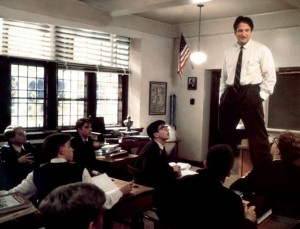
After the ceremony, Neil Perry (Robert Sean Leonard) is informed by Nolan that he expects great things from him in this, his senior year. Neil promises not to disappoint and goes outside where he meets his new roommate, the extremely introverted Todd Anderson (Ethan Hawke in his leading role debut). As Todd and Neil are unpacking their belongings, a group of Neil’s friends (and the focal characters of the film) are introduced; Richard Cameron (Dylan Kussman) Steven Meeks (Allelon Ruggerio) Knox Overstreet (Josh Charles), Gerard Pitts (James Waterston), and Charlie Dalton (Gale Hansen) who clearly has the most outgoing and domineering personality of the group. The boys welcome Todd to ‘Hell-ton’ and mock the four pillars of excellence with a hushed chant of Travesty, Horror, Decadence, Excrement.
The fun is cut short when Neil’s overbearing father (Kurtwood Smith) drops in. Mr. Perry has decided Neil is taking too many extracurricular activities and that he has dropped him from the school annual, something Neil enjoyed. Neil protests briefly before his father ushers him out into the hallway. “After you finish medical school you can do as you damn well please, but until then you’ll do as I tell you.” Neil quashes his argument and Mr. Perry leaves. This type of control has been going on for some time as Knox and Charlie ask Neil why he doesn’t just tell his father off. Neil retorts by referring to his friends as ‘Mr. Future Lawyer’ and ‘Mr. Future Banker,’ demonstrating that they all come from similar situations.
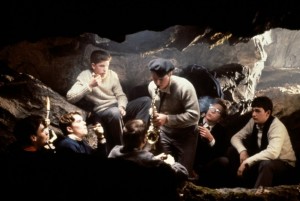 On their first day, the boys are shown attending class after class, each containing monstrous amounts of work and teachers that seem more interested in advising of how they will be punished or deterred for not completing work than in actually teaching. The change comes when they enter the English class, and Mr. Keating, saying nothing at first, briskly walks through the room whistling to himself before vanishing into the hallway and beckoning the students to follow. Reluctant at first, the students are lead to the main foyer where Keating conducts his first lecture on a subject that will become the controlling voice of the students for the next four months. The lecture is on the Latin term Carpe Diem (seize the day). Keating has them study the haunting photos of old Welton students that are all long dead. Since everyone is going to die someday, Keating implores them to make their lives extraordinary.
On their first day, the boys are shown attending class after class, each containing monstrous amounts of work and teachers that seem more interested in advising of how they will be punished or deterred for not completing work than in actually teaching. The change comes when they enter the English class, and Mr. Keating, saying nothing at first, briskly walks through the room whistling to himself before vanishing into the hallway and beckoning the students to follow. Reluctant at first, the students are lead to the main foyer where Keating conducts his first lecture on a subject that will become the controlling voice of the students for the next four months. The lecture is on the Latin term Carpe Diem (seize the day). Keating has them study the haunting photos of old Welton students that are all long dead. Since everyone is going to die someday, Keating implores them to make their lives extraordinary.
The next class, Keating has the boys rip out the absurd introduction to their poetry books (where a Ph.D. explains the use of a metric scale used to determine if one has enjoyed reading a poem), emphasizing that in his class they will learn to think for themselves again. Fellow professor Mr. McAllister (Leon Pownall) disagrees with Keating’s methods. “Free thinkers at seventeen?” He asks. “When they realize they’re not Shakespeares, Rembrandts, or Mozarts, they’ll hate you for it.”
While looking through the old school annuals to dig up info on Keating, the boys discover his mention of a secret club called the ‘Dead Poets Society’ and approach him to find out what it was. Through his teachings, Keating prophesizes a recurring message to the boys about life; the powerful play will go on and you may contribute a verse. What would your verse be? The boys reignite the ‘Dead Poets Society,’ in which they sneak out of the school at night and meet in a nearby cave to recite poetry and dive into the deeper meanings of life.
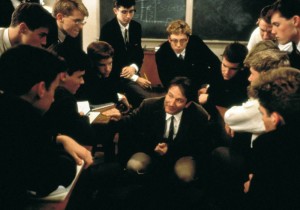
Keating’s message has a different affect on each of the boys; Todd discovers he is a talented poet but must learn how to come out of his shell. Knox begins to sneak out of the school in attempts to court a beautiful girl he has met, and Neil discovers his passion for acting – which will directly disobey the orders from his father.
“Dead Poets Society” wins on all levels; the setting and score are beautiful and the acting is terrific. One great scene involves Mr. Keating brining Todd up to the front of the classroom to recite a poem. The fear Todd has of speaking in front of the class is embodied by Ethan Hawke and Robin Williams, known more for comical roles, delivers perfectly as a teacher helping a student. Each actor portraying the young students does an exceptional job of bringing the characters to life, from the brown-nosing Cameron to the verbose and free-spirited Charlie. Kurtwood Smith, most famous for his role in the sitcom “That 70s Show” is antagonistically perfect as Mr. Perry, who is not evil by any means, but a misguided and downright terrible father to Neil.
Several scenes are all-time greats and many will have you in tears. Characters are well developed and believable. Various poetic references and messages are dispersed throughout and the entire film will make you think. The final scene in the film is one of cinema’s all-time greatest scenes.
“Dead Poets Society” sits in my all time top ten movies. Carpe diem. Seize the day… and the DVD.
-by Matt Christopher
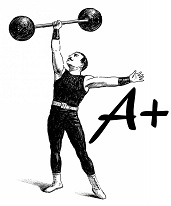

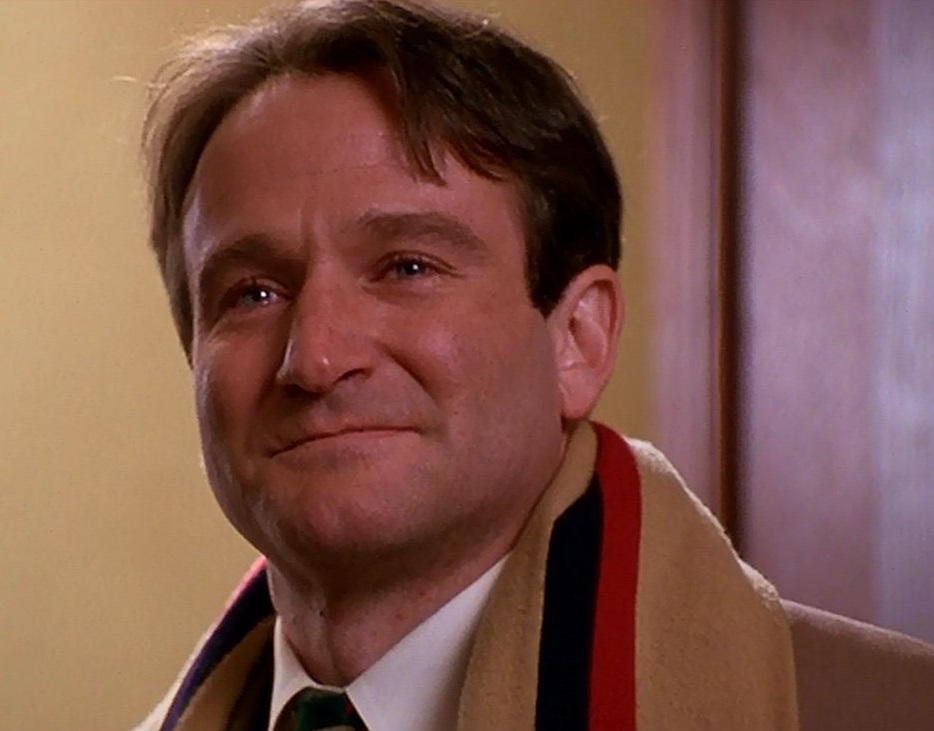
1 Comment
Great review and a great film.